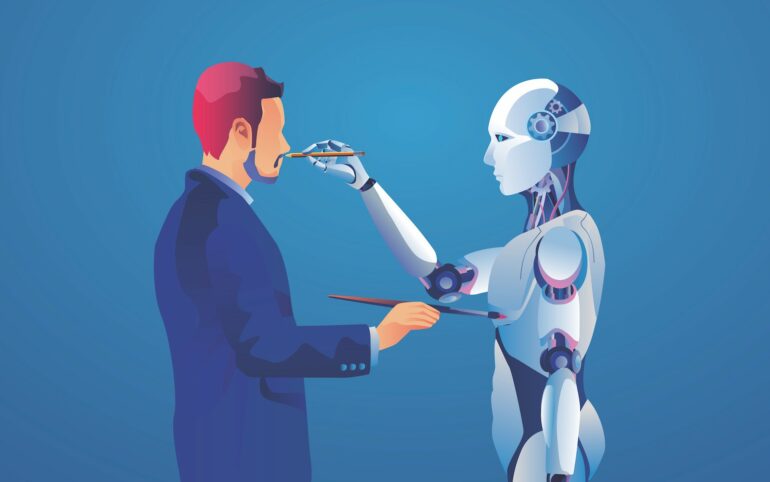The light and dark sides of AI have been in the public spotlight for many years. Think facial recognition, algorithms making loan and sentencing recommendations, and medical image analysis. But the impressive – and sometimes scary – capabilities of ChatGPT, DALL-E 2 and other conversational and image-conjuring artificial intelligence programs feel like a turning point.
The key change has been the emergence within the last year of powerful generative AI, software that not only learns from vast amounts of data but also produces things – convincingly written documents, engaging conversation, photorealistic images and clones of celebrity voices.
Generative AI has been around for nearly a decade, as long-standing worries about deepfake videos can attest. Now, though, the AI models have become so large and have digested such vast swaths of the internet that people have become unsure of what AI means for the future of knowledge work, the nature of creativity and the origins and truthfulness of content on the internet.
Here are five articles from our archives the take the measure of this new generation of artificial intelligence.
1. Generative AI and work
A panel of five AI experts discussed the implications of generative AI for artists and knowledge workers. It’s not simply a matter of whether the technology will replace you or make you more productive.
University of Tennessee computer scientist Lynne Parker wrote that while there are significant benefits to generative AI, like making creativity and knowledge work more accessible, the new tools also have downsides. Specifically, they could lead to an erosion of skills like writing, and they raise issues of intellectual property protections given that the models are trained on human creations.
University of Colorado Boulder computer scientist Daniel Acuña has found the tools to be useful in his own creative endeavors but is concerned about inaccuracy, bias and plagiarism.
University of Michigan computer scientist Kentaro Toyama wrote that human skill is likely to become costly and extraneous in some fields. “If history is any guide, it’s almost certain that advances in AI will cause more jobs to vanish, that creative-class people with human-only skills will become richer but fewer in number, and that those who own creative technology will become the new mega-rich.”
Florida International University computer scientist Mark Finlayson wrote that some jobs are likely to disappear, but that new skills in working with these AI tools are likely to become valued. By analogy, he noted that the rise of word processing software largely eliminated the need for typists but allowed nearly anyone with access to a computer to produce typeset documents and led to a new class of skills to list on a resume.
University of Colorado Anschutz biomedical informatics researcher Casey Greene wrote that just as Google led people to develop skills in finding information on the internet, AI language…



